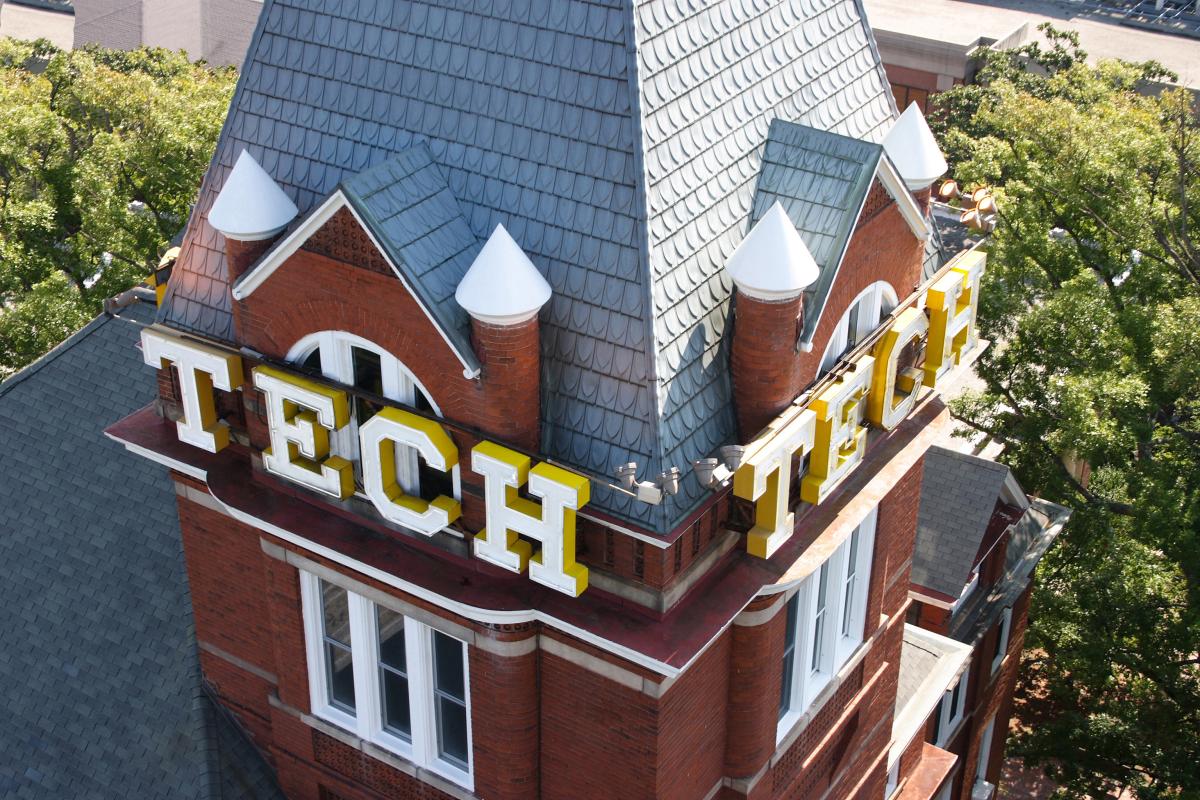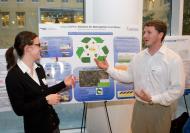
Organized by Georgia Tech’s Institute for Leadership and Entrepreneurship, the annual Ideas to SERVE Competition is open to all Georgia Tech students and recent alumni who have an early-stage product/service idea or venture concept that could help solve social issues or sustain the environment.
Urban RePeel recently won first place in Georgia Tech’s 2011 Ideas to SERVE Competition for its environmentally friendly business concept that would help minimize the amount of metropolitan food waste going into landfills. The project, which won $2,000 for first place (the John Woodall Award), includes environmental engineering graduate students Nicole Sullivan and Jared McGrath and chemical engineering graduate student Ryan Ravenelle. During their presentation on March 16 at the competition finals, they highlighted the fact that 12 percent of the annual landfill waste in Georgia is from food and that America spends $1 billion a year to deposit food waste in landfills.
Urban RePeel would help solve this problem by collecting food waste from Atlanta restaurants, cafeterias, and apartment complexes and converting it into vermicompost using red wigglers at an industrial warehouse center. The excrement of the red wigglers, who can eat their weight in food waste daily, could be sold to local farmers, landscapers and gardeners as an environmentally friendly alternative to chemical fertilizers.
Two teams tied for first runner-up in the Ideas to SERVE Competition, each receiving $1,500: Incinerate and OneTab. The former, led by mechanical engineering major Christian Weil, is developing a small modular incinerator that could burn trash safely in developing countries.
OneTab – the other runner-up led by biomedical engineering majors Benjamin Chism, Eric Gaupp, Joseph Kim, and Joshua Lee – is developing an ECG device made of recycled parts that could be used to transmit medical information from hospitals where energy and medical expertise are sparse to doctors in other locations who can interpret medical data and provide treatment advice.
More than $6,000 in prizes was awarded at the finals, in which seven teams competed. Twenty-six teams competed in the preliminary round on March 10. Other finalist teams included ArkFab, an urban organic farming system; Sustainable Solar Sanitation System, a solar-powered latrine unit; Camp Phoenix, a container housing project for homeless veterans; and Team Yucca, a volunteer matching Web service. The preliminary Poster Showcase was attended by a team of 17 judges, representatives from Atlanta’s leading social enterprises, including Better World Books, MedShare, Global Soap Project, and Opportunity International.
